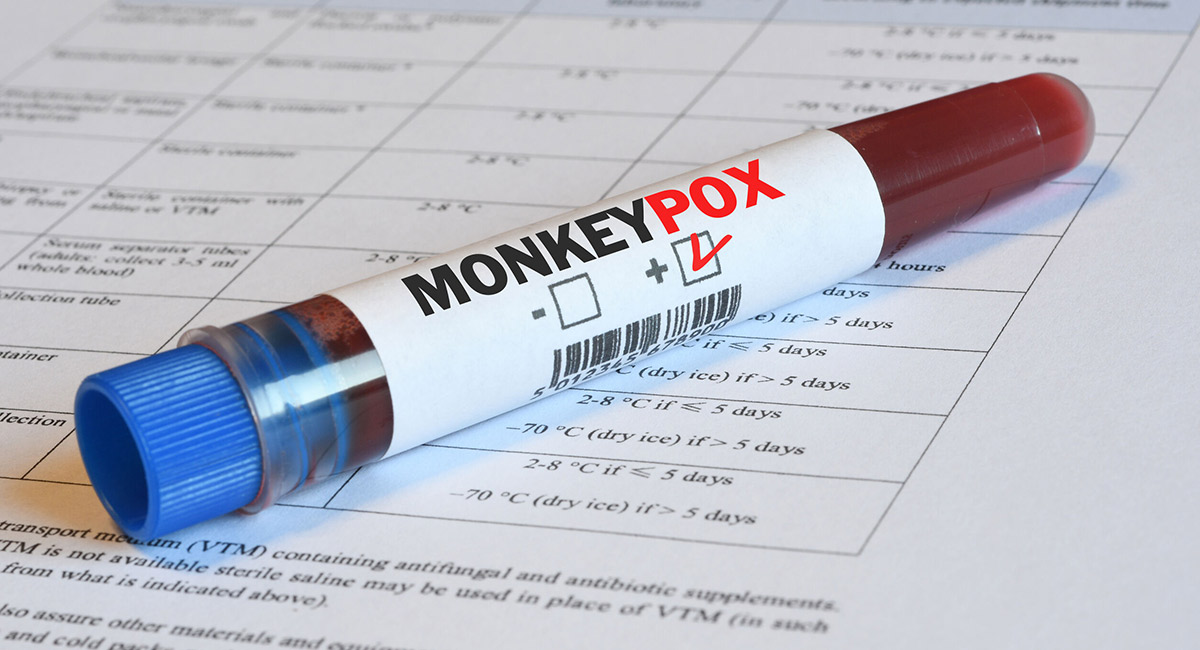The U.S. Centers for Disease Control last week issued a travel advisory over monkeypox, reported in Europe, North America, Australia, and the Middle East, and counting Israel and the United Arab Emirates among the 20 countries affected. According to the CDC, “some cases were reported among men who have sex with men. Some cases were also reported in people who live in the same household as an infected person.”
This advisory is a departure from previous CDC materials on monkeypox, which is a misnomer.
“Monkeypox does not occur naturally in the United States,” the CDC explains, “but cases have happened that were associated with international travel or importing animals from areas where the disease is more common.” A 2003 “outbreak” was traced to a shipment of animals from Ghana to Texas. The various African squirrels, mice, pouched rats, porcupines, and such were “housed near prairie dogs” at a facility in Illinois.
Contact with the infected prairie dogs caused all the 47 confirmed and probable cases, and monkeys are not mentioned. According to the CDC, “No instances of monkeypox infection were attributed exclusively to person-to-person contact.” That differs from current reports of monkeypox transfer by sitting near someone with symptoms and the warning about men who have sex with men. As Science magazine reports, these men “make up a disproportionate number of the cases so far.”
Embattled Americans might recall the reversals of Anthony Fauci on COVID-19, followed by the proclamation that he represents science. Fauci, whose bio shows no advanced degrees in biochemistry or molecular biology, once claimed that even “close contact” with an AIDS patient could cause infection. That wasn’t true, and Fauci’s prediction of an AIDS outbreak in the general population was hopelessly wrong. With both COVID and monkeypox, more seems to be going on than junk science.
To prevent exotic diseases from arriving on American soil, the CDC deploys the Epidemic Intelligence Service (EIS). As the CDC explains, “EIS officers serve on the front lines of public health, protecting Americans and the global community.” When diseases and public health threats emerge, “EIS officers investigate, identify the cause, rapidly implement control measures, and collect evidence to recommend preventive actions.”
In 2003, EIS officers failed to prevent the first outbreak of monkeypox outside of Africa. The CDC slapped a restriction on the importation of African rodents, but that was well after the fact. What the EIS learned from the experience is uncertain but in 2020, the vaunted EIS also failed to prevent the coronavirus that causes COVID-19 from arriving on American soil.
Before Fauci took center stage, the CDC mouthpiece was Dr. Nancy Messonnier, director of the CDC’s National Center for Immunization and Respiratory Diseases (NCIRD). Messonnier began her career in 1995 as an EIS officer.
In a series of telebriefings in early 2020, Messonnier echoed the talking points of the World Health Organization (WHO) and China. “We should be clear to compliment the Chinese,” Messonnier told reporters, “on the early recognition of the respiratory outbreak center in the Wuhan market.”
When a reporter asked about individuals returning from Wuhan, Messonnier said that was “not something that I’m at liberty to talk about today.” None of the reporters asked which government official was laying down the rules, and Messonnier was silent about any role the EIS might have played. Last May, CDC boss Rochelle Walensky hailed Messonnier as a “true hero” but failed to explain why the EIS veteran suddenly resigned from the CDC.
As U.C. Berkeley molecular biologist Peter Duesberg noted in Inventing the AIDS Virus, the EIS came to be known as the nation’s “medical CIA.” With members embedded in federal agencies, the World Health Organization, and the media, the EIS serves as “an informal surveillance network,” and as “advocates for [sic] the CDC viewpoint.”
When the CDC viewpoint is the same as China’s, that could be a problem. The same CDC now proclaims monkeypox among us, and check out the distinguished spokesman:
“We have had this monkeypox in large numbers in the past. We have vaccines to take care of it,” Joe Biden proclaimed last month. “It is a concern in that if it were to spread it would be consequential. That’s all they told me.”
What did the CDC’s Epidemic Intelligence Service know, and when did they know it? And what did they do about it, if anything? Since the people have a right to know, Congress should look into it.
As it happens, a congressional election is just around the corner. If monkeypox somehow becomes a crisis, the Biden regime won’t let it go to waste.








